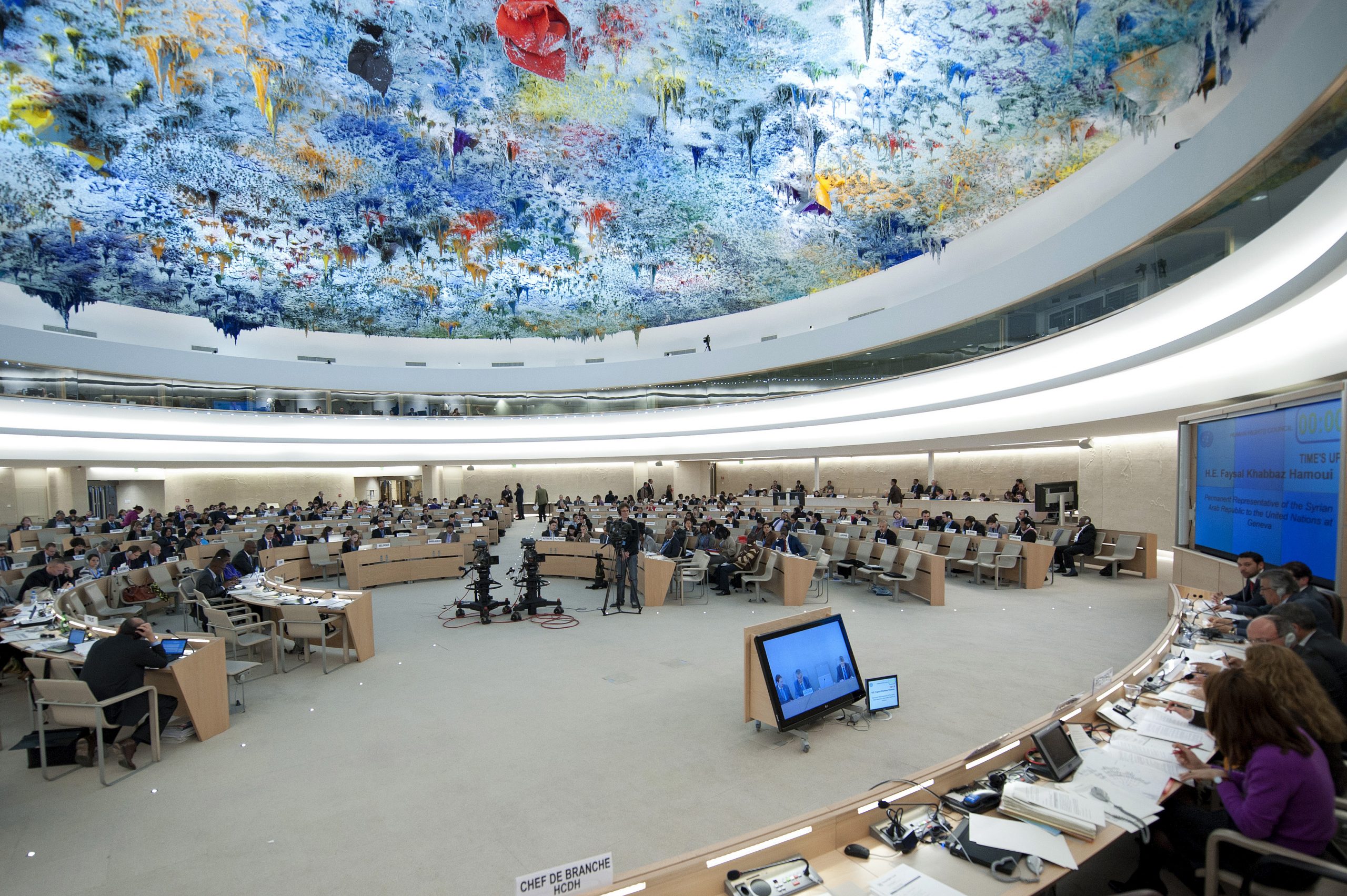
Iran: Human Rights Council must convene a special session
Fifty organisations urge the UN Human Rights Council to urgently convene a special session to address an unprecedented escalation in mass unlawful killings of protesters in Iran.

In an unprecedented move, a cross-regional group of 25 States have urged China to uphold its international obligations and to allow independent observers to access and investigate grave human rights violations in Xinjiang.
Update: Italy, Portugal, and Slovenia have also signed the joint letter, now co-signed by a total of 25 States.
阅读中文版请点此。
In a joint letter addressed to the UN High Commissioner for Human Rights and the President of the Human Rights Council, ambassadors from 25 States from across Asia Pacific, Western and Eastern Europe and North America have expressed collective concern over widespread surveillance, restrictions to freedom of religion and movement, and large-scale arbitrary detention of Uyghurs and other minorities in Xinjiang. They have urged China to uphold its national laws and international obligations, and called for meaningful access to Xinjiang for independent observers, including the High Commissioner, as ISHR has consistently pushed for.
ISHR welcomes this significant and positive step towards accountability and action by the Human Rights Council and the High Commissioner. It comes at a time where China is deploying vast diplomatic and propaganda efforts to rebuke what it deems as ‘Western hypocrisy’ and legitimise grave rights violations in Xinjiang, against findings by the High Commissioner herself.
The joint letter sends a clear message that Council membership does not shield any State from its international obligations. On the contrary, as a Council member, China must uphold the highest standards in promoting and protecting human rights and fundamental freedoms, and fully cooperate with the Council.
Welcoming the joint letter, ISHR Director Phil Lynch said ‘It is significant and positive that 25 States have joined together to express concern about the widespread arbitrary detention, as well as the systematic racial and religious discrimination, against Uyghurs and other Turkic Muslims and minorities in Xinjiang.’
‘These violations, possibly amounting to crimes against humanity, must be fully and independently investigated, with both individual and Chinese State actors held to account,’ Lynch said. ‘We urge the principled and courageous governments that have signed this letter to follow up through bilateral pressure and, unless there is substantial improvement in the meantime, also through collective action in the form of a resolution when the Council next convenes in September.’
Strong evidence of grave and widespread violations in Xinjiang has been consistently documented in a growing body of UN reports, including from the Special Procedures, and from the Committee on the Elimination of Racial Discrimination (CERD) in its August 2018 review of China.
In a statement delivered last week under Human Rights Council agenda item 4, the Chinese delegation stated it had ‘always called for constructive dialogue and cooperation’. Yet, for such calls to be credible, they must result in meaningful cooperation by China with all UN human rights mechanisms, including the effective implementation of CERD recommendations, as urged by the letter signatories. This includes the timely submission of its follow-up report to the Committee by the end of August.
The joint letter was sent on behalf of Australia, Canada, Japan, New Zealand, Iceland, Norway, Switzerland, and 19 EU States, including France, Germany, the UK, and the Netherlands. The full content of the joint letter is available here.
For more information, please contact Sarah M. Brooks (at [email protected] or Twitter @sarahmcneer); or Raphaël Viana David (at [email protected]T or on Twitter at @vdraphael).
Image credits: UN Photo / Jean-Marc Ferré

Fifty organisations urge the UN Human Rights Council to urgently convene a special session to address an unprecedented escalation in mass unlawful killings of protesters in Iran.

In a landmark ruling against Burundi, the UN Committee against Torture has set a precedent on the protection of lawyers and human rights defenders engaging with UN mechanisms, affirming that reprisals for cooperating with the UN violate the Convention Against Torture.

Are you a human rights defender working on democratic backsliding and/or racial justice, keen to use the UN to push for change at home? If so, apply for the 2026 edition of ISHR’s flagship training, the Human Rights Defender Advocacy Programme (HRDAP)!